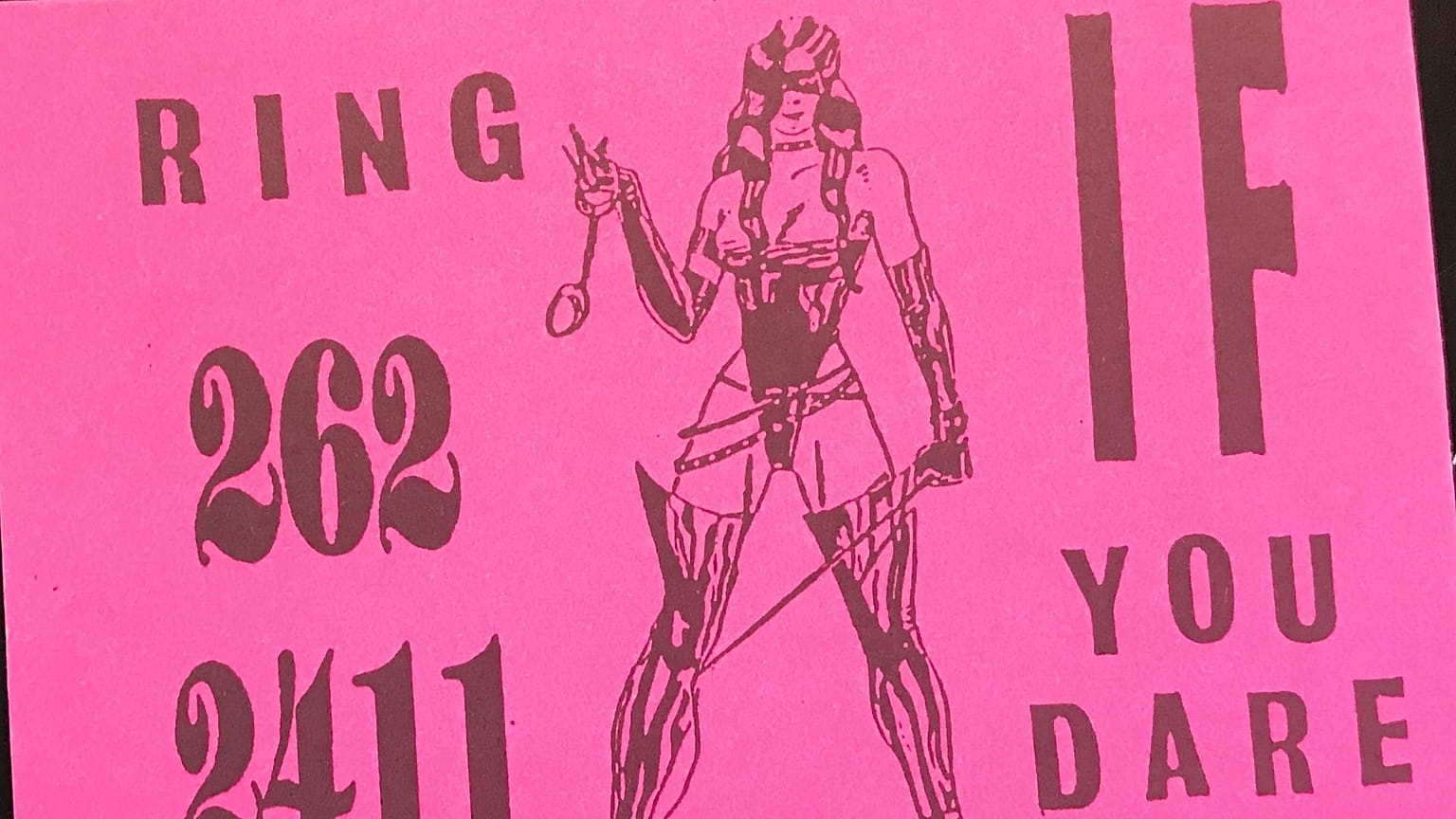Titillation or a sociological document. Euronews takes a look at the phenomenon of 'tart cards', the way London's sex workers got themselves noticed.
Business cards for sex workers - which are affectionately known as ‘tart cards’ - may not seem like the most obvious items to be found in a library collection.
 ADVERTISEMENT
ADVERTISEMENT
 ADVERTISEMENT
ADVERTISEMENT
But a vast catalogue of them can be browsed at the Wellcome Collection in London, which is documenting the development of this form of advertising, from the mid-1980s onward.
Sex workers needed to be smart about posting their cards, usually in London’s iconic phone boxes, as the law prohibited any tampering with the phone booths, and police on patrol would be on the lookout.
With a collection of around 4,500 cards, visitors to the Wellcome Collection can get an insight into “the history of sex work, the history of design, the history of printing”, Collections Development Librarian Mel Grant tells Euronews.
“They’re not just kind of fun, silly cards. They’re a reflection of sex workers, a profession that is out there, one I think there is a need for a better understanding of,” she says.
“So they can be a good starting point to talk about sex work and the history of it in a more sort of contemporary way.”
The museum's collection grew to such a quantity due to the librarians who went out to the surrounding neighbourhoods of Euston and King's Cross - popular with sex workers until the late 90s - taking the tart cards from phone boxes.
For Grant, and for many visitors to this unusual hoard, these cards are not merely evidence of a burgeoning sex industry, but rather an extended sociological document that charts changes in social trends around sex work, and the innovations of advertising.














